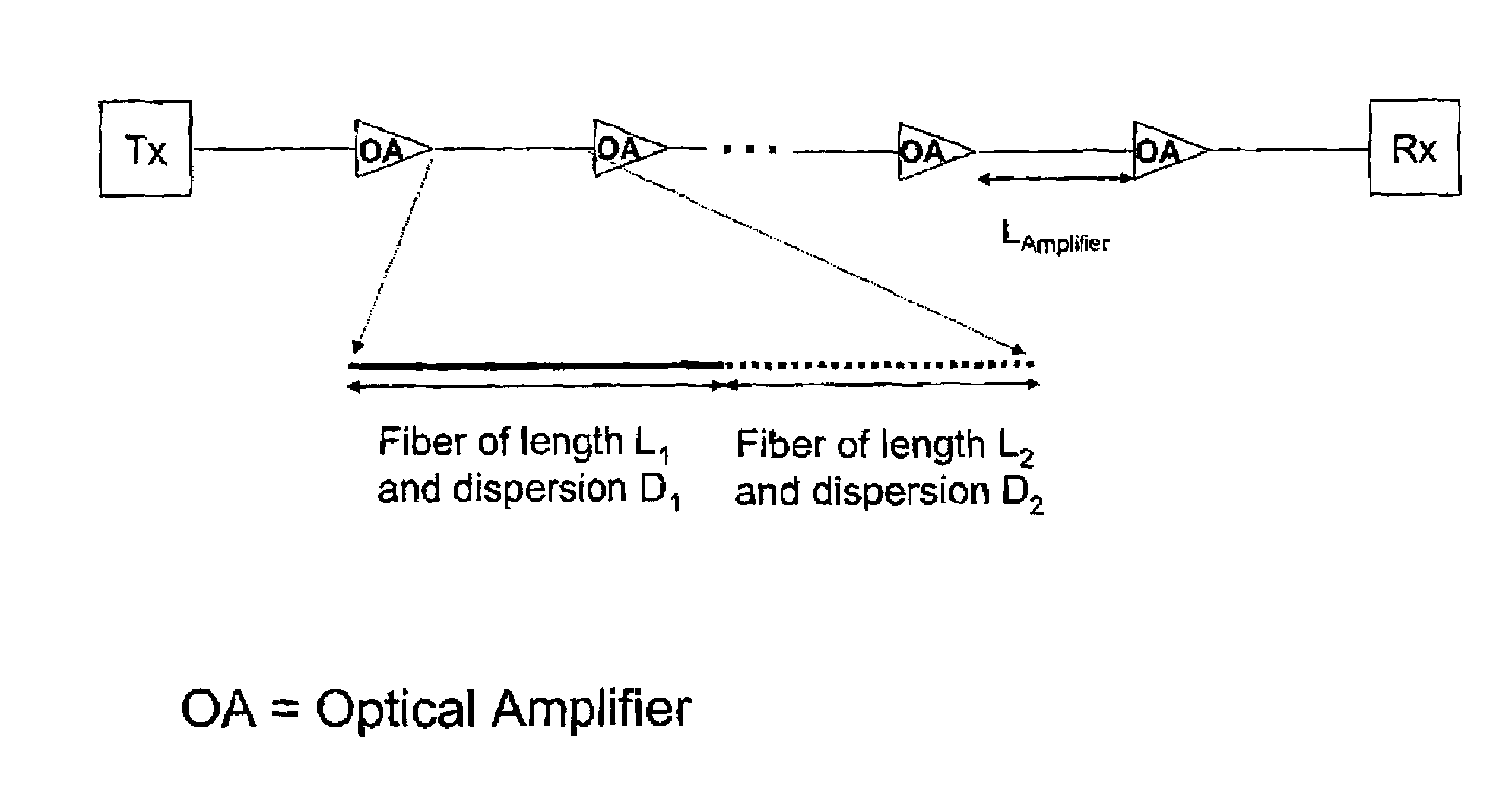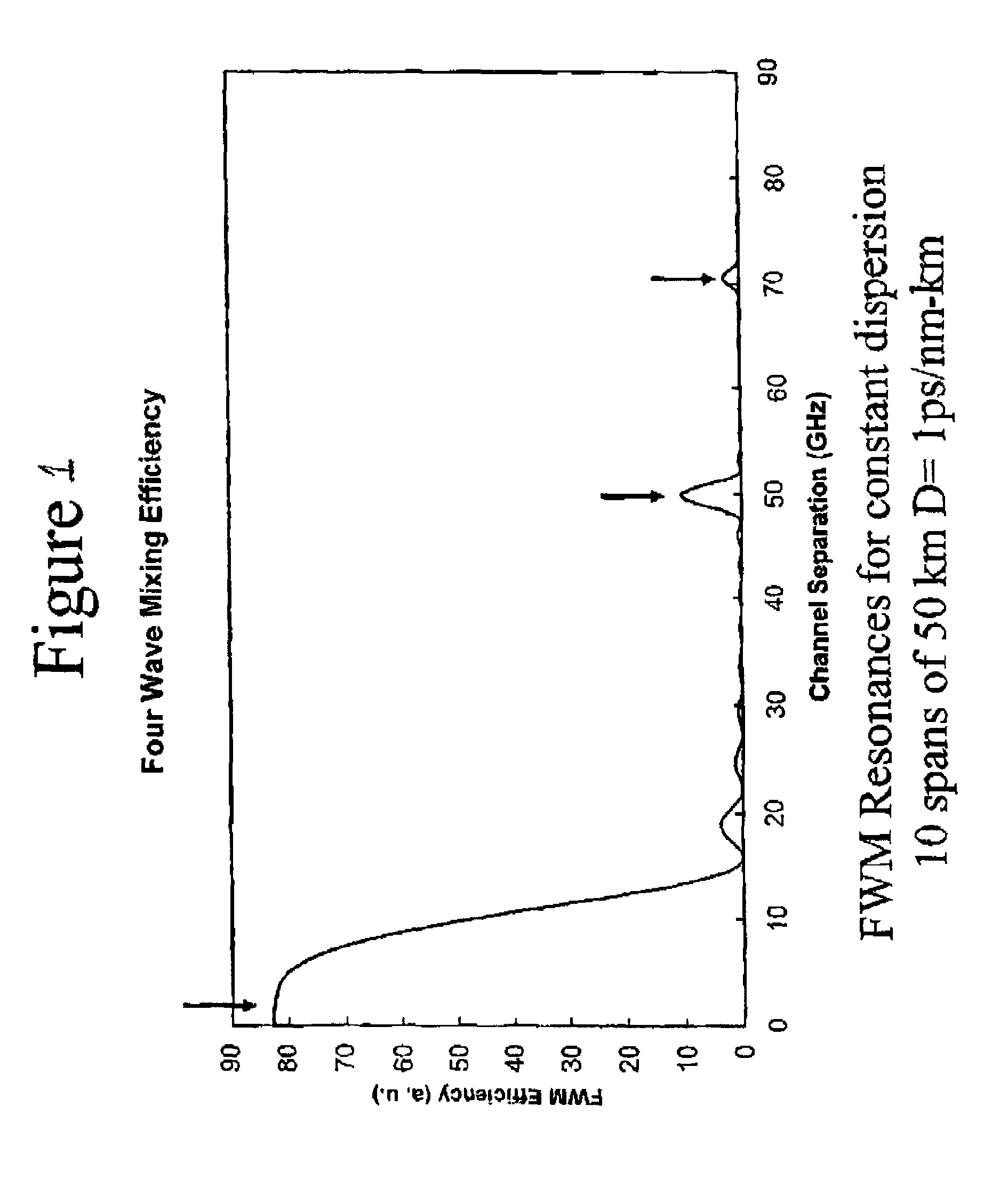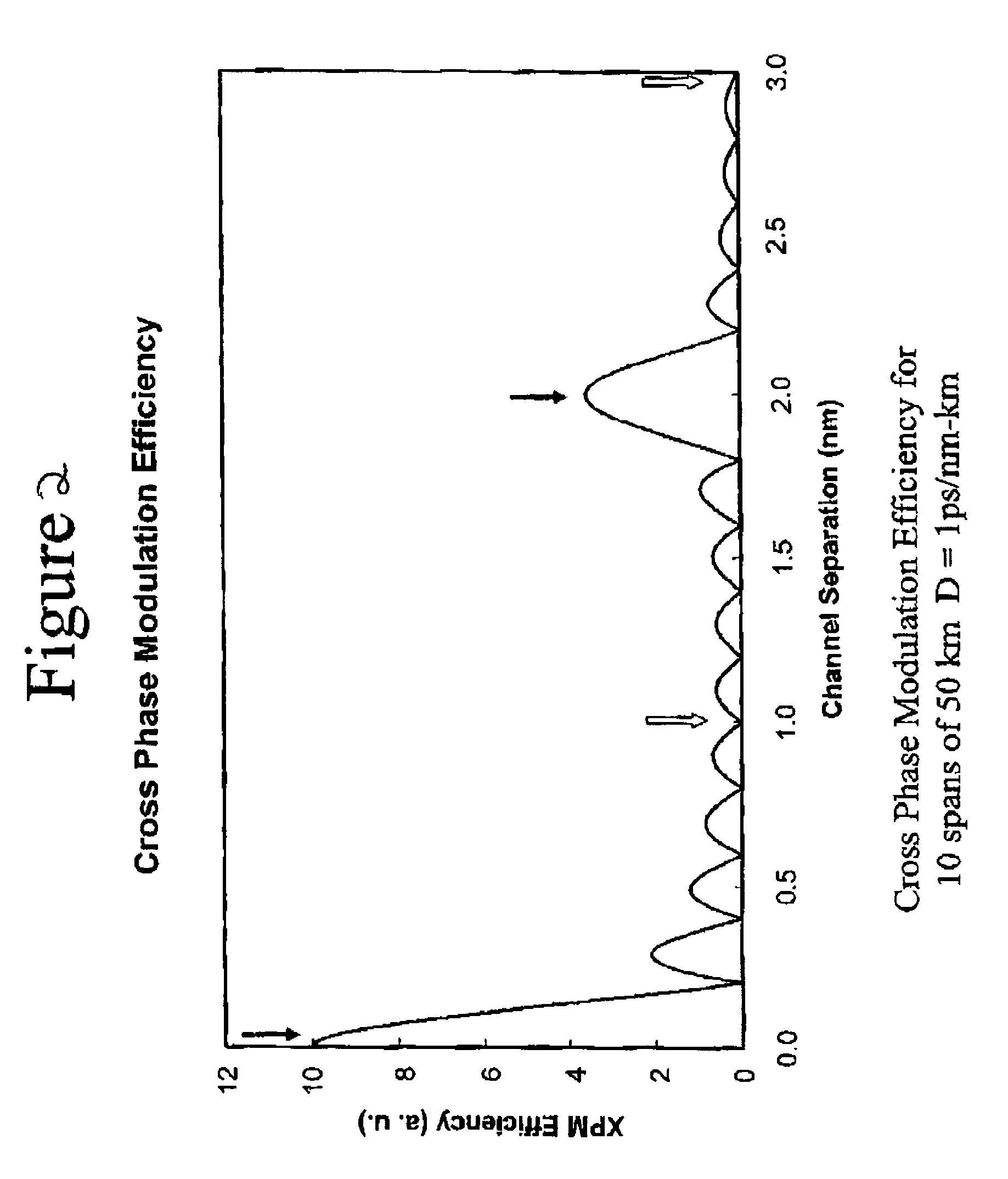Optical communication system having an antiresonant dispersion map suppressing four wave mixing and cross phase modulation
a technology of optical transmission system and dispersion map, which is applied in the field of optical transmission system dispersion map for undersea optical transmission system, can solve the problems of power transfer out of the signal into unwanted wavelengths, fiber loss in such systems in the range of about 0.20 to 0.25 db/km, and inability to achieve the effect of enhancing these processes, suppressing nonlinear interactions, and sound signal temporal fidelity
- Summary
- Abstract
- Description
- Claims
- Application Information
AI Technical Summary
Benefits of technology
Problems solved by technology
Method used
Image
Examples
Embodiment Construction
Resonant Four Wave Mixing for Constant Dispersion
[0023]Recent work, both theoretical and experimental, has demonstrated that the phenomenon of resonant four wave mixing in transmission lines can be greatly enhanced by the periodic fluctuations of signalintensity due to loss in the fiber and gain in the amplifiers. (See, for example, “Pseudo-phase-matched four wave mixing in soliton wavelength-division multiplexing transmission” P. V. Mamyshev and L. F. Mollenauer Optics Letters Vol. 21 No.6 Mar. 15, 1996; “Energy Transfers and Frequency Shifts from Three Soliton Collisions in a Multiplexed Line with Periodic Amplification” S. G. Evangelides and J. P. Gordon Journal of Lightwave Technology Vol. 14 No. 7 July 1996; “Phase-mismatching characteristic of four-wave mixing in fiber lines with multistage optical amplifiers” K. Inoue Optics Letters Vol. 17, No. 11 Jun. 1, 1992). In resonant four wave mixing, the periodicity of gain and loss along the transmission line serves to phase match (...
PUM
 Login to View More
Login to View More Abstract
Description
Claims
Application Information
 Login to View More
Login to View More - R&D
- Intellectual Property
- Life Sciences
- Materials
- Tech Scout
- Unparalleled Data Quality
- Higher Quality Content
- 60% Fewer Hallucinations
Browse by: Latest US Patents, China's latest patents, Technical Efficacy Thesaurus, Application Domain, Technology Topic, Popular Technical Reports.
© 2025 PatSnap. All rights reserved.Legal|Privacy policy|Modern Slavery Act Transparency Statement|Sitemap|About US| Contact US: help@patsnap.com



